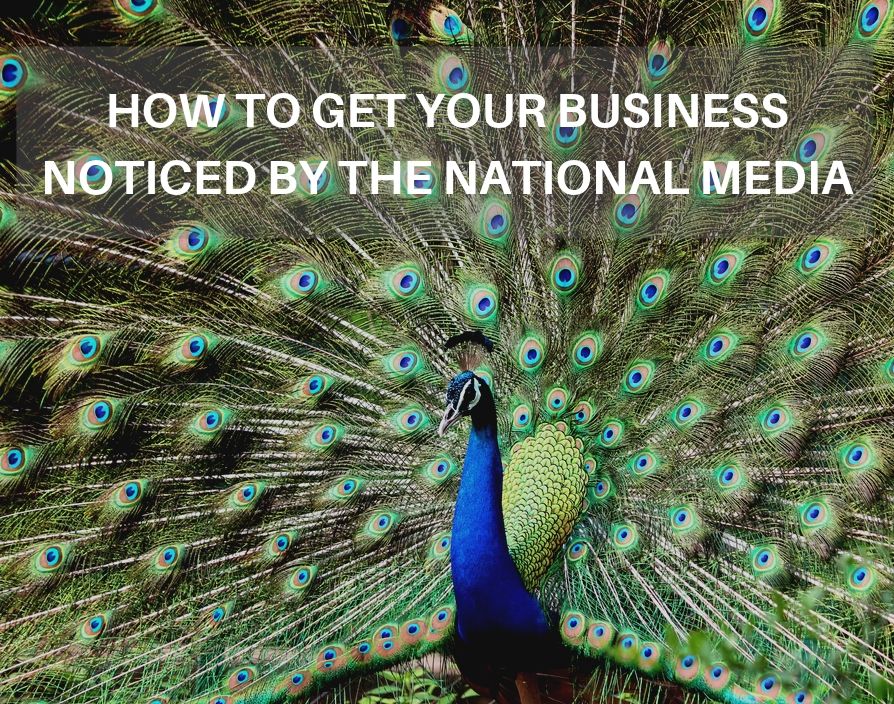How to get your business noticed by the national media
There will be many Elite Business readers who want more publicity to build credibility and generate leads for their business but lack the budget for a PR campaign.
Business owners often discount the idea of trying to get in the press, believing their firm will not be of interest to the national media, whether that is newspapers, business magazines or broadcasters.
While caution is always wise when venturing into the unknown, in reality journalists are usually keen to hear from business owners doing interesting things. What they are not interested in is inconsequential matters such as new websites, minor charity activities and me-too ‘innovations’.
In fact, a quick glance through Elite Business together with the UK’s many other newspapers and trade publications, shows journalists interviewing and profiling SME businesses and start-ups with interesting views and stories.
Some SMEs will have press officers or PR agencies, but there is no law that says you must use one. Coverage can equally come through you simply emailing an idea to the journalist or picking up the phone. In fact, looking around a publications’ website and social media tells you who writes what sort of article, their phone number and contact details… simples!
When seeking coverage you don’t need to overcomplicate things, there are just three simple steps to getting in the press and the first one we’ve just covered already – identify the right person at the right publication.
The second key step for success is to approach the journalist with something they will want to write about… attempting to persuade them to write about something you desperately want publicised, but they see as having no interest to their readers, will always be hard work!
What things do journalists like? Well many people look at publications and conclude they like company announcements (new joiners, for example), charity events and writing about company products… and then wonder why they get little coverage for theirs.
In fact, aside from a few sectors like restaurants, savings products and cars, journalists rarely review products. They get swamped with press releases announcing new appointments or the latest charity sponsorship and fund-raiser, and only carry a fraction of these, if any.
Nor is “new business with no customers launches, offering untried software” a great story for journalists to write (or readers to read), yet many business tech start-ups effectively try to launch their products from just such a position.
Putting aside news that is so important they must be covered, journalists want stories that will inform and/or entertain their readers. Look carefully at the publications you want to be in and look for the sorts of stories they write, especially from businesses comparable to yours.
Examples of the sorts of opportunities for SME businesses are:
- Being
the expert. There is a huge demand from business publications for advice to help readers. This article is a case in point. This is a major opportunity for businesses such as professional and consultancy firms. However, if you are knowledgeable about your market and customer needs, there is no reason why you can’t write advice articles too.
The key is to give useful and impartial advice based on facts, experience and in clear English, not jargon, and without skewing things so it is all about why people should use you.
- A
colourful back story – if you are fortunate to have a distinctive back-story to your business, that is important. Did you overcome an adversity, challenge conventions or maybe blaze a risky and unproven trail. Here’s a recent example on Elite Business. However, it doesn’t have to be a personal challenge, it could have been a business challenge such as overcoming not being able to get funding or a major setback.
- Speak
out. There is no shortage of business owners who want to speak about how wonderful their services are and how smoothly they have overcome every challenge without a blip. There are surprisingly few who will talk about the business impact of economic, legal and other issues.
In fact, most run-to-the-hills at the prospect of something remotely contentious. While not for the feint-hearted, pursing this tactic has ensured success and prominence for Charlie Mullins and his business, Pimlico Plumbers, through him being regularly in the media due to his willingness to talk about business and political issues and not just plumbing ones.
His firm boasts on its website of being “the most high-profile plumbing company in the world” and says “Public Relations have been key to Pimlico’s reputation and presence in London for decades. In a recent interview he is quoted as saying “I’d rather people be talking about me than the plumber up the road… what makes you an ordinary business is sitting on the fence. What makes you a different business, and quite often a better business, is putting your head above the parapet.”
- Have
a cause you are passionate about. If you are passionate about your business that is great (quite frankly there’s a problem if you are not), but being passionate for a cause beyond that is going to dramatically increase your impact.
This could be what drove you to set up your business: for instance, starting a sustainability business because you wanted to protect the environment. Or maybe it is a cause you have adopted, such as a local regeneration initiative or campaigning for a change in your industry.
The third key step, after knowing the publication and creating a story or viewpoint they are likely to want, is to deal with them in the right way.
Dealing with journalists can be hard work. Part of this is they get so many emails they reply to few of them, and in fact often don’t open many of them. Part of this is that a significant minority get off on feeling important and enjoy being rude to people who call them… this was equally true 25 years ago! All I can say if be thick-skinned, don’t sink to their level, and persevere.
Nowadays each journalist must write lots of stories each day, so they often hide behind voicemail too.
So, the first rule is perseverance. Even if they read your email, no response may mean they did not like it, and it could also equally mean they liked it but were to busy to action it and have since forgotten.
The second element is timing. The media is a “just in time” production process, and journalists aren’t there twiddling their thumbs. Contact them days earlier than you think you need too.
No one lost coverage from starting too early, whereas it is commonplace for businesses to get no coverage through missing the boat. This is particularly the case where something is time-sensitive, such as commenting on something topical, such as a new law or the Budget.
Get in early, keep trying and don’t give up after a couple of initial knockbacks. Building a reputation is a long-term undertaking, but as with most things in business if you approach it with knowledge and passion, your energy will bring results in the end.
Share via:


















































